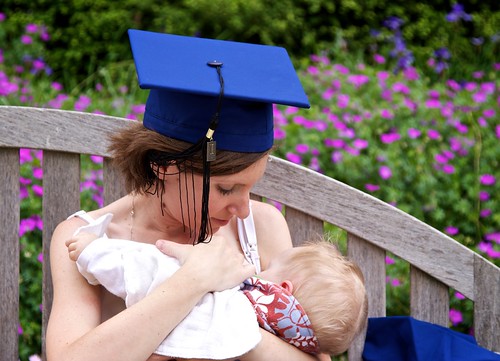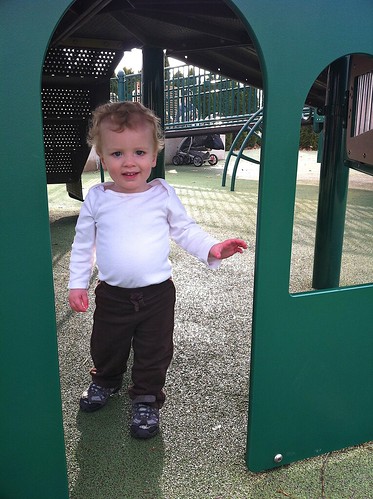I saw this report today and became so outraged I think I was actually having heart palpitations.
The report prompted me to write this response, but I don't know who I should send it to. The superintendent? The members of the school board? How do I even find their addresses?
Well, I figured I'd start by posting it here. Recently, when my friend was told she couldn't nurse her baby in a hospital cafeteria, I wrote about it and people found it. Quickly. Maybe the same will happen this time?
Here goes.
To whom it may concern:
I am deeply disturbed by a recent report in the media (“DCSS looks at breast feeding at schools”), which discusses a proposal to ban both teachers and students from breastfeeding their children while on school property. The superintendent of the Dougherty County School District in Georgia suggests that this policy meets the legal requirements of accommodating the needs of nursing mothers. However, I fail to see how this policy is anything other than blatantly discriminatory and detrimental to both mothers and their children. According to state breastfeeding laws, in Georgia, a mother is permitted to breastfeed her child in any location that the mother and child are otherwise authorized to be. Therefore, as long as women and their children are authorized to be on campus, the school district’s policy appears to violate this law directly.
The recently published article alleges that school officials say that allowing students or teachers to breastfeed their children on campus will disrupt to the educational process. Further, the article states that school officials believe they are providing adequate support to mothers by allowing them to express breastmilk in the nurses station while on designated breaks. While I commend the school for providing breast pumps for both teen mothers and teachers in the district, this measure alone is insufficient to support the best interests of either mothers or their babies. It is unclear to me, based on the superintendent’s quote, whether he is against permitting infants in the school or whether he specifically wishes to prevent them from being breastfed while on the premises. He voices concern that infants will cry and disrupt classes. If infants are permitted on campus, certainly nursing them would stop them from crying much more quickly than if a mother were required to go to the nurses station, express breastmilk, and then feed it to her infant in a bottle.
The new policies are discriminatory for nursing mothers who work in the school district, but perhaps even more disturbing is the impact that this proposal would have on the 271 teenage mothers who attend classes in the district. Breastfeeding rates have been notoriously low for teenage mothers, and numerous studies have cited lack of social support and fear of stigmatization as primary factors that inhibit breastfeeding in teenage mothers. The policies proposed by the DCSS directly reify the social and physical barriers to breastfeeding that teenage mothers face. While the school district seems to feel it is covering its bases by permitting the expression of breastmilk via a breastpump, the policy itself sends a clear and unambiguous message that nursing an infant at the breast is an unacceptable cultural practice. It is important to note that breastfeeding rates in the state of Georgia fall below the national average at every measured stage; moreover, such a restrictive policy directly counter-indicates the Surgeon General’s call to action to increase breastfeeding in the United States.
It is my sincere hope that the members of the Dougherty County School Board vote against these restrictive breastfeeding policies.
Respectfully yours,
Cloth mother, PhD.






